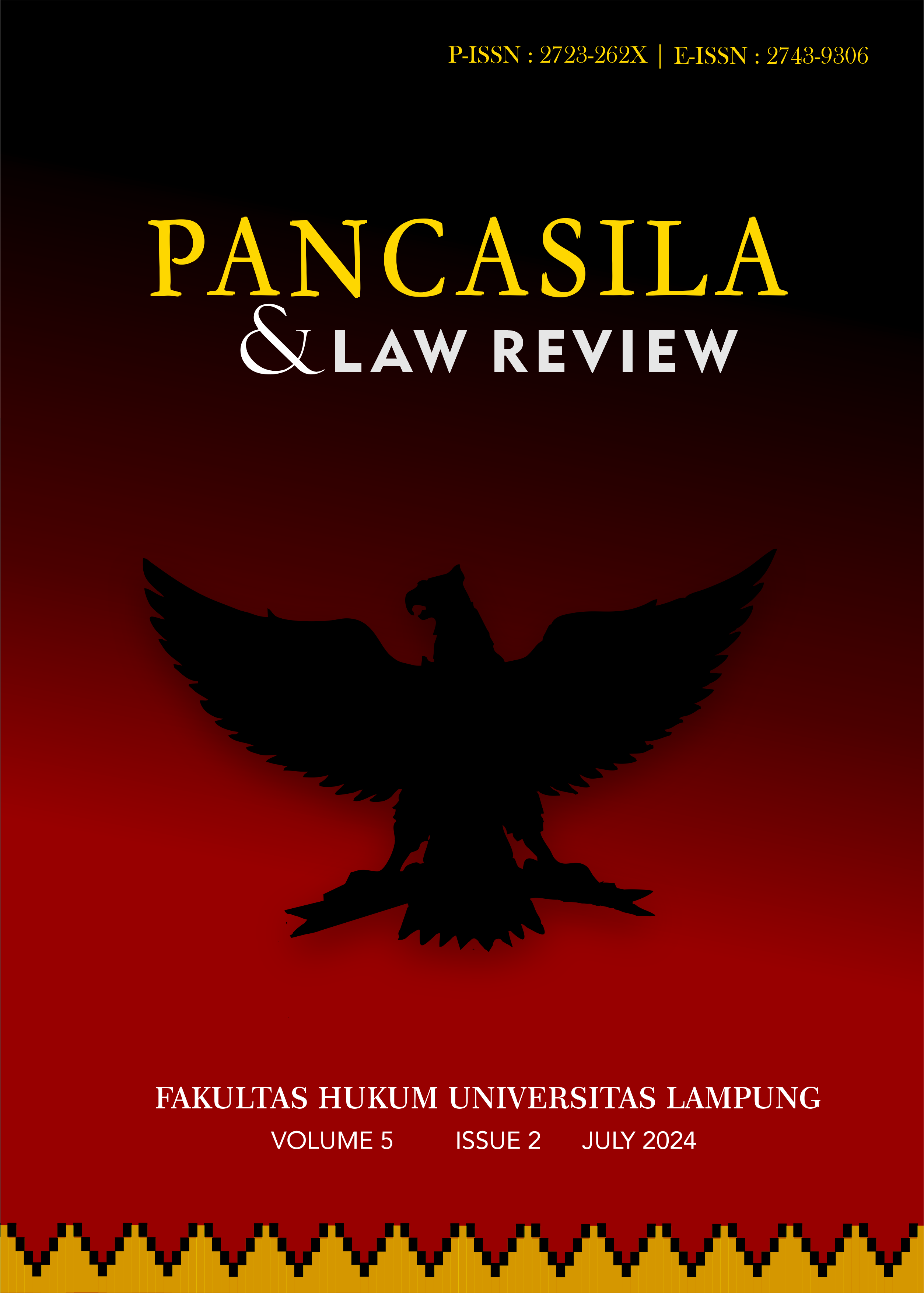Artikel (63)
Village administration is pivotal to national economic development and resilience, a role formally recognized with the enactment of Law Number 6 of 2014 concerning Villages. Prior to this legislation, the recognition of village governance was primarily based on Article 18B paragraph (2) of the 1945 ...
Pancasila and Law Review; Vol 4 No 2 (2023); 75-88 | 2023
The late twentieth century identified a significant rise in legal claims intersecting human rights and environmental protection, a connection that became evident following the Stockholm Conference of 1972. This conference established the foundational link between environmental conservation and the r...
Pancasila and Law Review; Vol 4 No 1 (2023); 59-74 | 2023
In land grabbing cases, the intersection of civil and criminal law has led to pre-judicial challenges, creating a sense of insecurity among those seeking justice through criminal proceedings. Furthermore, the Criminal Procedure Code does not recognize the NO (Niet Ontvankelijke Verklaard) decision. ...
Pancasila and Law Review; Vol 4 No 1 (2023); 49-58 | 2023
A significant challenge in Indonesian agriculture is the decline in commodity prices during the main harvest season. Farmers often lack the financial resources and storage facilities needed to hold their crops longer, which results in exploitation by middlemen and loan sharks. To address these issue...
Pancasila and Law Review; Vol 4 No 1 (2023); 29-38 | 2023
The crime of theft involves the clandestine taking of another person's property without permission or coercion, resulting in material harm and violating societal values and norms. This study examines the basis for the judge's considerations in the case decided under Decision Number 2/Pid.Sus-Anak/20...
Pancasila and Law Review; Vol 4 No 1 (2023); 39-48 | 2023
It is inconceivable to have crimes without laws that prescribe or enforce them. There must also be an accompanying authority, either a state or an institution, endowed with the capacity to enforce these laws. For crimes occurring on land, it is generally straightforward to identify the entity with t...
Pancasila and Law Review; Vol 4 No 1 (2023); 13-28 | 2023
Law comprises norms and sanctions designed to regulate behavior, maintain order and justice, and prevent disorder. It ensures the existence of legal structures within society. However, legal systems can differ significantly across jurisdictions. For instance, the Indonesian legal system, often refer...
Pancasila and Law Review; Vol 4 No 1 (2023); 1-12 | 2023
The changes in societal dynamics following the Covid-19 pandemic prompted the government to seek appropriate policy directions for the civil servants, leading to the introduction of a Flexible Working Arrangement (FWA) policy, including Work From Home (WFH), as detailed in KemenPANRB Circular Number...
Pancasila and Law Review; Vol 3 No 2 (2022); 121-130 | 2022
Globalization has significantly impacted various sectors, including law enforcement in Indonesia, bringing both positive and negative consequences. Current law enforcement practices have often lacked a solid foundation, resulting in persistent injustices. Consequently, there is a need for both preve...
Pancasila and Law Review; Vol 3 No 2 (2022); 131-142 | 2022
The Attorney General's Office of the Republic of Indonesia has introduced a significant initiative to resolve cases through the termination of prosecutions based on restorative justice. The Prosecutor's Office, functioning as a case controller under the dominus litis principle, plays a crucial role ...
Pancasila and Law Review; Vol 3 No 2 (2022); 111-120 | 2022


